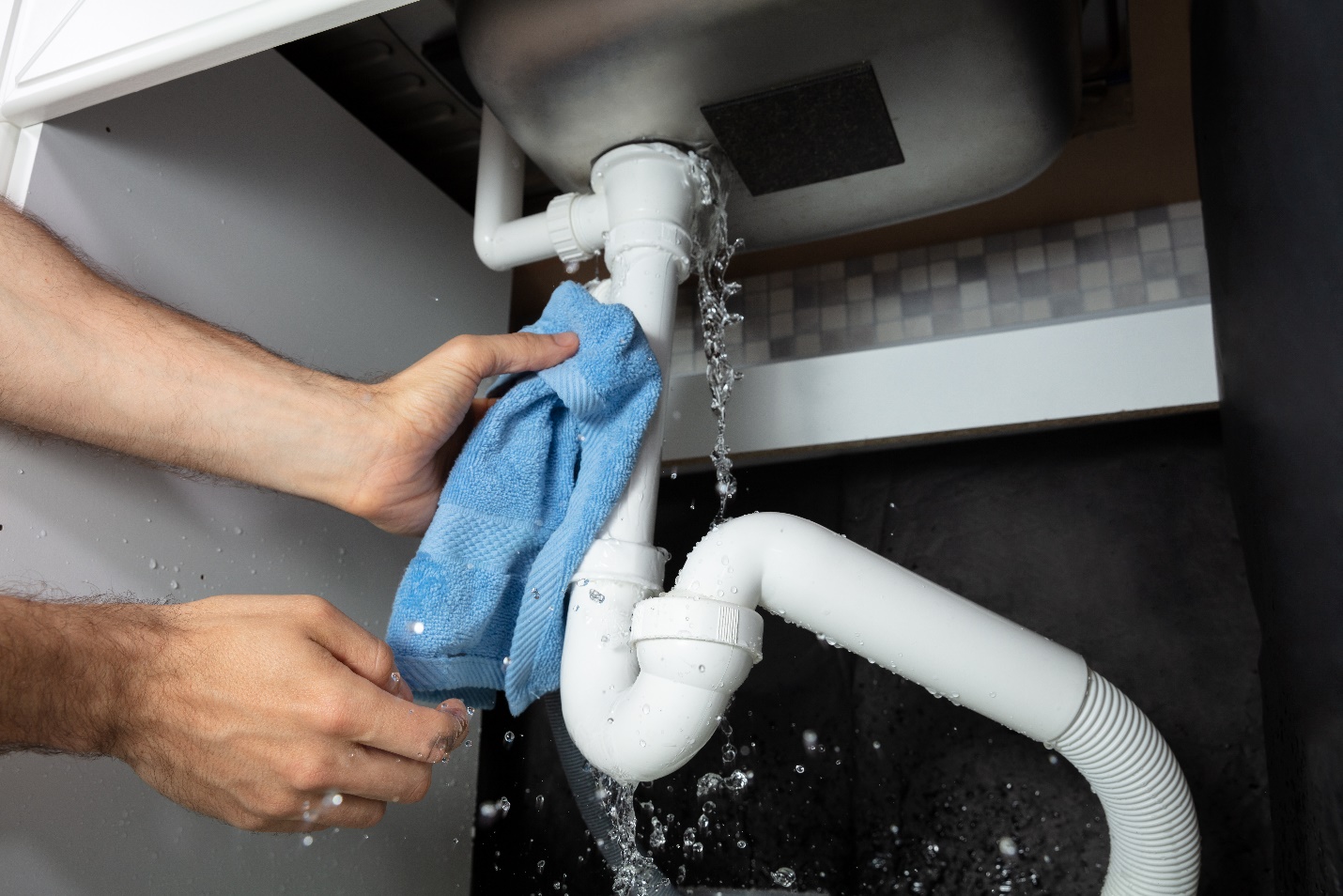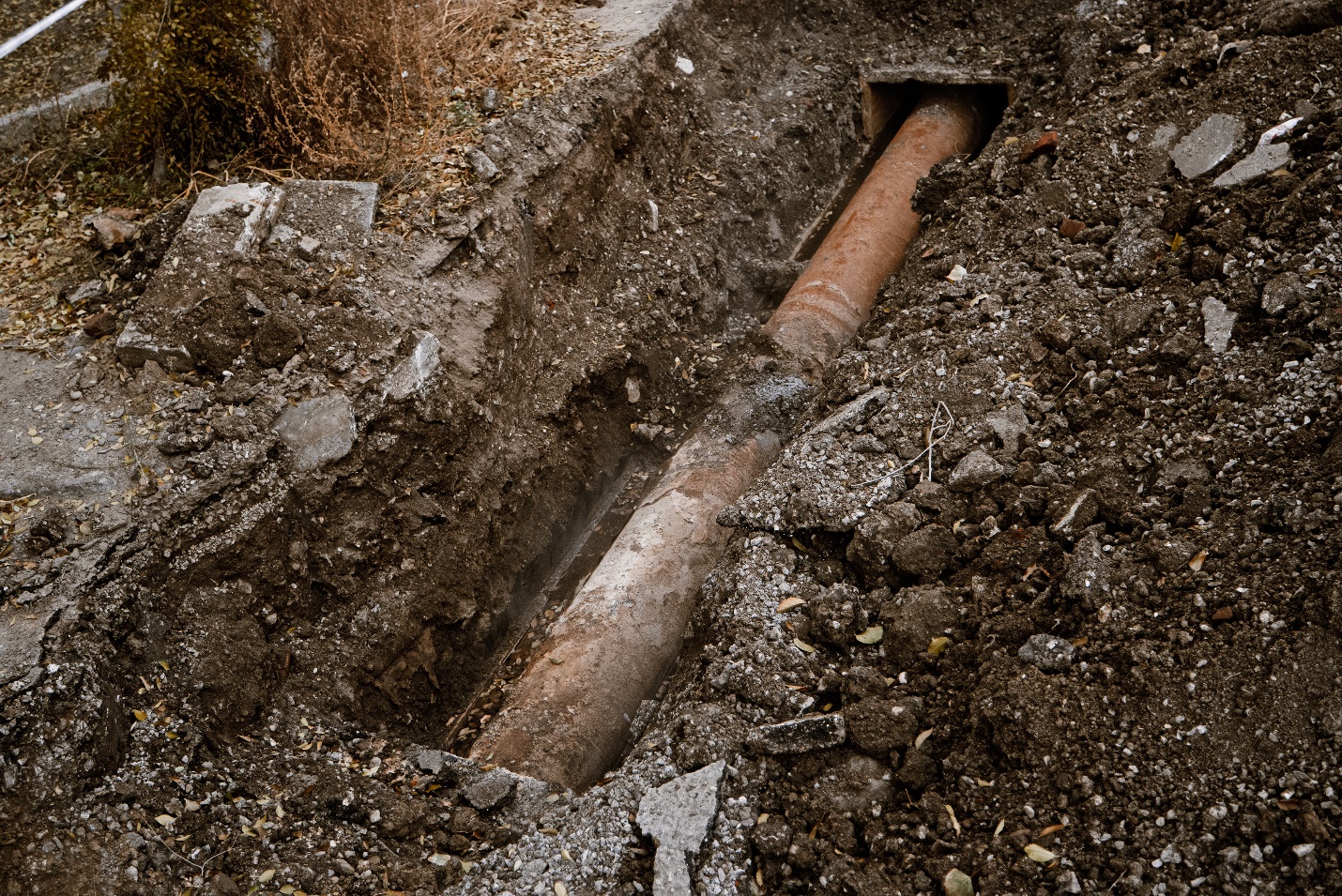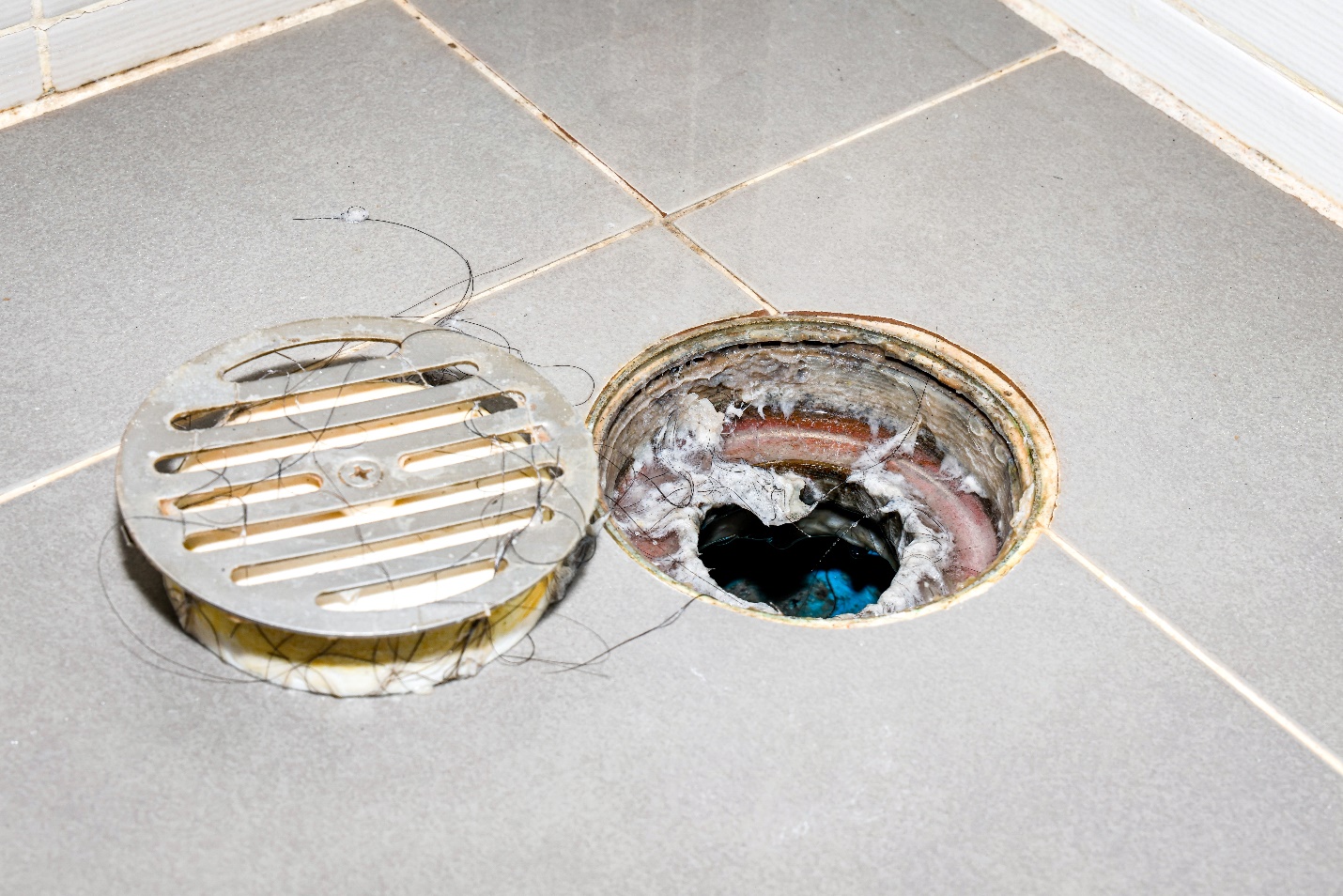Bathroom odors happen from time to time, but if you have a pungent odor of sewage lingering in your bathroom, you probably want to find the source and fix it as soon as possible. It’s hard to feel clean and fresh, especially right after a shower, if the room you wash in has a stink of waste and sewage.
Why does my bathroom smell like sewage? Here are some common causes of bathroom sewage odors – as well as some DIY solutions – from the pros at M&M Heating and Air. Let’s get your bathroom smelling fresh again.
Common Causes of Sewage Odor in the Bathroom
Dry P-Trap
One of the most common reasons for a sewage-like smell in the bathroom is a dry P-trap. This is the U-shaped pipe segments that are located beneath sinks, showers, and toilets. They work by retaining a small amount of water, creating a barrier that prevents sewer gases from entering your living space. If a bathroom fixture is not used regularly, the water in the P-trap can evaporate, allowing foul odors to come into the space. The curve can also collect dirt, grime, hair, oils, and other debris that lead to foul smells.
Usually, running water in all your bathroom fixtures regularly can keep the P-trap filled. If the smell persists, consider pouring a small amount of mineral oil into the drain to slow down water evaporation. You can also take the pipe apart to clean and sanitize the P-trap. Keep in mind that dirty P-traps often come from a broken, clogged, or obstructed vent line. This is typically beyond most DIY homeowners, so you may want to contact a professional plumber to resolve the problem.
Leaking Pipes
A leaking drain line is a serious issue that can cause the smell of sewage to come up into the drain. Waste and wastewater from the sink and shower need to flow down into the main drain to leave your home. If this line is leaking, the wastewater can seep into the surrounding area, leading to smells from your drain or even your walls and floors. Over time, you’ll have to deal with damage to your drywall, insulation, framing, and other materials, so it’s important to address the issue as soon as possible.
You may be able to fix a leaking pipe on your own, but it’s best to call a professional. Depending on where the leak is, you may need to open up the walls or floor of the bathroom to access the damaged portion of the drain line. You will also need to repair the insulation, drywall, tile, or any other materials that may have been damaged by leaking wastewater.
Blocked Vent Pipe
The plumbing system in your home is equipped with vent pipes that extend through the roof to release sewer gases outside. If these vent pipes become blocked or obstructed, the gases may find their way into your bathroom, causing an unpleasant smell. More than that, they can also leak methane, which is a health hazard for your family.
Try inspecting the vent pipes for any visible obstructions, such as debris or bird nests. Other signs of a blocked vent pipe include slow drainage and gurgling sounds. If the problem persists, it’s advisable to seek professional plumbing assistance to address the issue. They can clear obstructions and ensure the vent pipe is open. To prevent future problems, you may need to install vent caps or screens.
Leaking or Damaged Sewer Pipes
A more serious and potentially costly issue is a leak or damage in the sewer pipes. Cracks or fissures in the pipes can allow sewage gases to escape, leading to a foul odor in the bathroom. Worse yet, sewer pipe issues can pose a threat to the structural integrity of your home and property. In addition to smells, you may have slow drains, unexplained wet spots, and a sudden spike in your water bills.
If you suspect this is the problem, it’s best to leave the work to the professionals. These kinds of issues are serious and require professional knowledge and tools. Another thing to consider is regular plumbing inspections and maintenance, which can identify these issues long before they become major repairs.
Blocked or Clogged Drains
One of the most common problems in the shower or sink in your bathroom is a clog in the drain that leads to foul odors. The accumulation of hair, soap scum, and other debris in drains can cause clogs, impeding the proper flow of water and causing unpleasant odors. Clogs often take time to form, so you may not notice a problem until the clog begins to collect mineral deposits, trapped hair, and soap scum.
Use a plunger or drain snake to remove blockages. You can also try a homemade drain cleaner made of one cup of baking soda and one cup of white vinegar. Pour the baking soda down your drain first, then the white vinegar. The chemical reaction between the two can clean some of the debris in your drain. If the problem persists, call a professional plumber. To prevent future clogs, install drain strainers to catch hair and debris.
Broken Wax Ring Seal
A wax ring seal is a critical component between the toilet and the floor. It serves as a watertight seal between the base of the toilet and the flange on the floor. This seal prevents water and sewer gases from escaping into your bathroom. It also stabilizes the toilet by anchoring it securely to the floor. If this seal is broken or damaged, it can allow sewage gases to escape, causing a foul smell.
You may be able to identify this yourself by removing the toilet and inspecting the wax ring, but if you’re not comfortable doing this yourself, hire a professional plumber. You have to be sure that you’re dismantling the toilet, fixing the ring, and reinstalling the toilet properly, which can be a big job for a lot of homeowners.
Improperly Installed or Faulty Toilet
A toilet that is not installed correctly, or has flaws, it can contribute to sewage odors. This can happen if your toilet is inadequately sealed, has loose bolts or a faulty flush mechanism, or doesn’t maintain the proper water level. Cracks in the porcelain of the toilet bowl or tank can also harbor bacteria and emit odors.
If you don’t think your toilet was correctly installed, call a plumber to fix it. If you’re sure it was installed correctly, you should also check for visible cracks and damage. If the problems persist, a plumber can inspect and repair them.
Septic Tank Issues
For homes connected to a septic system, issues with the tank, such as overflows or leaks, can lead to sewage odors in the bathroom. The septic tank is important in wastewater treatment, so if problems happen, the consequences can be disgusting odors. This could be caused by tank overflows, leaks or cracks in the tank, a clogged drain field, an insufficient pump, or tree root intrusions.
Regular septic tank maintenance and timely professional inspections can prevent and address potential problems. Ensure that your tank is pumped regularly to avoid overflows. If there are issues with the drain field or tree roots, you may need to bring in professionals to correct these problems for the future.
Mold and Mildew Growth
Moist environments, which are common in bathrooms, provide ideal conditions for mold and mildew growth. These organisms can produce musty and unpleasant odors. You may also notice visible stains, musty odors, structural damage to your walls or flooring, and allergies or respiratory issues.
Clean and disinfect your bathroom regularly to prevent mold and mildew growth. Ensure proper ventilation by using exhaust fans or opening windows during and after showers. You may need to bring in a professional plumber to address issues with ventilation or humidity that contribute to mold and mildew growth.
Sewer Gas Backflow
In rare cases, sewer gas backflow can occur, especially if there are issues with the sewer main. This can cause a strong sewage odor in various parts of the house, including the bathroom. Sewer gas backflow can happen from blocked vents, improperly installed P-traps, faulty seals and gaskets, sewer line issues, and pressure imbalances.
Immediate professional intervention is necessary if you suspect sewer gas backflow. Plumbers can assess the situation and correct any problems to ensure you’re safe and healthy. Depending on the cause, this could mean sewer line repair, seal and gasket inspection, vent system cleaning, and pipe repair.
Keep Your Bathroom Smelling Fresh and Clean
Experiencing a sewage-like smell in your bathroom can be both unpleasant and concerning. It’s important to identify the root causes to get your bathroom clean, and more importantly, safe. Whether it’s a simple issue like a dry P-trap or a complex problem like a damaged sewer pipe that requires a professional plumbing repair. If you need help with your bathroom toilet, sink, or shower, contact the pros at M&M Heating and Air to schedule your appointment!





















